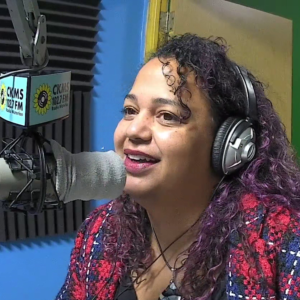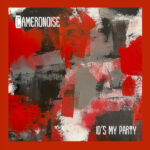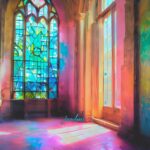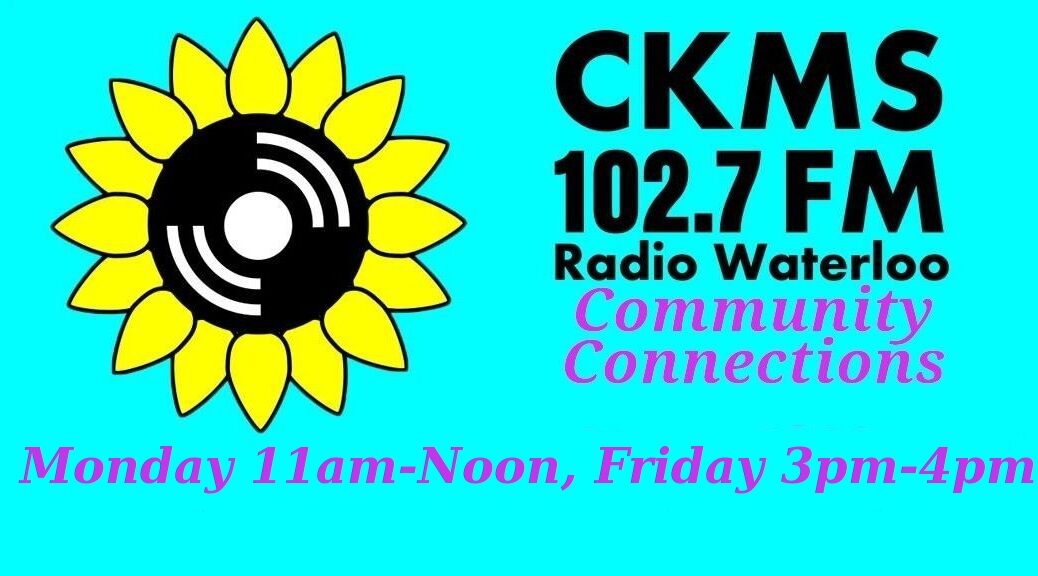Show Notes

Raechele Lovell is the chair of the Waterloo Region Arts Fund, and due to recent funding cuts has set up Save The Arts Waterloo Region. She also runs DiverseWorks, a safe space to practice the arts and teach de-colonialization.
The interview starts at 2m57s.
Save The Arts Waterloo Region:
- Twitter (X): Save The Arts Waterloo Region (@savethearts_wr) | Twitter
- Instagram: Save The Arts Waterloo Region (@) | Instagram
- E-mail: savethearts.waterloo@gmail.com
Raechele Lovell:
- Twitter (X): Raechele Lovell (@raechelelovell) | Twitter
- Facebook: Raechele Lovell (@raechele.lovell) | Facebook
- Instagram: Raechele Lovell (@heyitsmsrae) | Instagram
- TikTok: Raechele Lovell (@raechelelovell) | TikTok
DiverseWorks Co.:
- Website: https://www.thediverse.ca/
- Twitter (X): DiverseWorks Dance Co. (@diverseworksco) | Twitter
- Facebook: DiverseWorks Dance Co. | Facebook
- Instagram: DiverseWorks Dance Co. (@diverseworksco) | Instagram
- YouTube: DiverseWorks Co. | YouTube
- E-mail: director@thediverse.ca
Upcoming Events
-
Waterloo Regional Council – Delegate!
- When: 10:00am on Tuesday 5 March 2024
- Where: Council Chambers, Region of Waterloo
- Location: 150 Frederick Street, Kitchener Map
- Website: Agenda, Administration and Finance
- Register: Complete this form to speak at a Regional Council Meeting
Podcast
Download: ckms-community-connections-2024-02-26-episode151-Raechele-Lovell-of-Save-The-Arts-Waterloo-Region.mp3 (51 MB, 55m43s, episode 151)
Index
| Time | Title | Album | Artist |
|---|---|---|---|
| 0m00s | Theme for CKMS Community Connections ccc |
 CKMS Community Connections |
Steve Todd |
| 0m58s | Too Many Notes |
 Id’s My Party |
Cameronoise |
| 2m57s | Raechele is the chair of the Region of Waterloo Arts Fund, which provides grant support for artists, both organizations and individuals. Raechele had received funds for her company, Diverse Works, but the production was thwarted by the pandemic, so she turned it into a film, shown at the Registry Theatre. Subsequent years she received funds for other, varied projects. Raechele runs down what other types of projects are funded. | ||
| 6m07s | There are a lot of artists in Wateloo Region, but few opportunities. Federally, we’re considered an “artistic desert”; we’ve been systemically underfunded. There are several sources of funding, including the private sector and family. This artistic desert started with gentrification and the Mike Harris government (in 1995) reducing funding for arts in education. Private schools aren’t necessarily any better at teaching the arts, but they may have more capacity. The pandemic forced artists to change how they presented their art, but not equitably — not everyone has access to the equipment, or the learning capacity. And much pandemic funding is no longer available, even though the effects of the pandemic are still with us. Artists predominantly live under the poverty line. Raechele is lucky in that her day job is also in the arts. But people who need to work as servers, in retail, or a corporate job don’t have the capacity to do the art work. | ||
| 13m00s | Talking about the KW Symphony shut down. Not unexpected, but still a big shock. The symphony was deeply in debt, and funding from the region had been denied. Raechele points out, as a racialized, younger person “If the symphony can’t make it, who can?” The symphony shutdown caused a lot of unrest in the arts community. Over 70 musicians lost their jobs, as well as executives, supporters, the people who worked at the Conrad Centre and the Centre In The Square. And the patrons of the symphony are now going to other cities to enjoy their music. But the KW Symphony funding is not the only funding that was removed. Regional Councillor Kari Williams proposed a 20% reduction to the Arts Fund, but Waterloo Regional Council approved a 10% reduction. Not just the Arts Fund is affected, but the entire portfolio: the key cultural institutions, the grassroots initiatives, the upstream fund, a climate action change fund, and entrepreneurial initiatives. And this loss in funding occurred after these organizations had established their 2024 budgets; the cuts were made after the Director of Culture and Art, Helen Chimirri-Russell, stepped down, so the department had no oversight. Raechele was personally affected by these cuts, and has set up Save The Arts Waterloo Region, hoping to grow an on-going advocacy body for the arts sector. | ||
| 20m05s | jealous |
 jealous |
pax & Mikayla Lane |
| 23m06s | Raechele set up Save The Arts as a response to the systemic defunding of the arts, not just in Waterloo Region. Yet people are keen to approve a $14 million increase for the police budget which already has surpluses. Raechele is concerned about the funding of racist enforcement, that this is a delibrate effort to protect their colonial ways. There’s no interest in redirecting any of that money into community initiatives. There is data that putting money into prevention programs and affordable housing there would not be as much crime. The fact that this is being actively ignored feels intentional and like a systemic problem. Raechele feels very personally attacked. The hope is that Save The Arts will be able to address some of these issues. The campaign is for artists to have a safe space to come together to fight these battles together. Raechele’s goal is to move towards an arts council, to seek funding for the arts outside the Region. | ||
| 28m39s | Raechele talks about making art accessible. Her show for the MT Space IMPACT23 festival took place outside, on the Gaukel Block, free and available for everyone. Art gives hope, entertainment, empathy, compassion; this is what art does for us. Funding is vital to put on these no-admission performances, and still provide an income to the artists. | ||
| 30m35s | Communication about the cut in funding was poor — Raechele learned about the cuts from the news. This was just one of many concerns about governance alleged in the news. Raechele is joined in Save The Arts by some people from the Waterloo Arts Fund board and other artists, but this group is for everyone. The arts community in Waterloo Region is more vibrant that what Raechele has experienced in Toronto. The campaign can grow to benefit other regions; there are funding cuts at other arts organizations. Raechele sees the drop in funding as a step backwards to last century when artists needed to fight for civil rights, fighting for marginalized people. Raechele has had two meetings, the first a special Waterloo Arts Fund meeting to discuss the funding cuts, then a Town Hall meeting for the community. There’s a mailing list of around 200 people to keep informed of upcoming events. There are plans, but none Raechele is willing to share. | ||
| 37m03s | Pink Paper Hearts |
 Origami |
Amanda Braam |
| 39m31s | How to get funding: Running community workshops on how to get money from the Arts Fund, how to get money from the Ontario Arts Council. There’s no database of available options. Workshops on dealing with tax problems, how to make investments, and more. Most artists don’t have a financial background, but Raechele does. She started in the corporate workforce, but quickly realized she wanted to pursue her dreams. Recently Raechele made a trip to Barbados to celebrate her grandmother’s 100th birthday, and turned that experience into a documentary that she presented last year at THEMUSEUM. Her roots go back to the British slave trade on Barbados. | ||
| 45m42s | Raechele’s company DiverseWorks sprang out of frustration in giving dance lessons six days a week. It provided a creative outlet, and she had the experience to make it work. Working on de-colonialization sounds more like teaching, but Raechele still views it as art. She is in the process of building the DiverseWorks de-colonial arts hub, a physical safe space to practice, perform, dance, teach, all with racialized representation. | ||
| 51m15s | Raechele gives out the contact info for the Save The Arts campaign, and encourages everyone with concerns about funding in the arts sector to come to the Committee meeting on Tuesday 5 March 2024 to speak to Council. And go see art! | ||
| 55m00s | Bob gives the credits. | ||
CKMS Community Connections Hour One airs on CKMS-FM 102.7 on Monday from 11:00am to Noon, and Hour Two airs alternate Fridays from 3:00pm to 4:00pm.
Got music, spoken word, or other interesting stuff? Let us know at ccc@radiowaterloo.ca or leave a comment on our “About” page.
 Subscribe to the CKMS Community Connections podcast!
Subscribe to the CKMS Community Connections podcast!
![]() See all CKMS Community Connections shows!
See all CKMS Community Connections shows!
Bonus Video
Video: CKMS Community Connections for Monday 26 February 2024 (1.4 GB, Radio Waterloo Video)
Show notes and podcast interview content is Copyright © 2024 by the participants, and released under a  Creative Commons Attribution Only license. Copy, re-use, and derivative works are allowed with attribution to Radio Waterloo and a link to this page. Music selections are copyright by the respective rights holders.
Creative Commons Attribution Only license. Copy, re-use, and derivative works are allowed with attribution to Radio Waterloo and a link to this page. Music selections are copyright by the respective rights holders.
